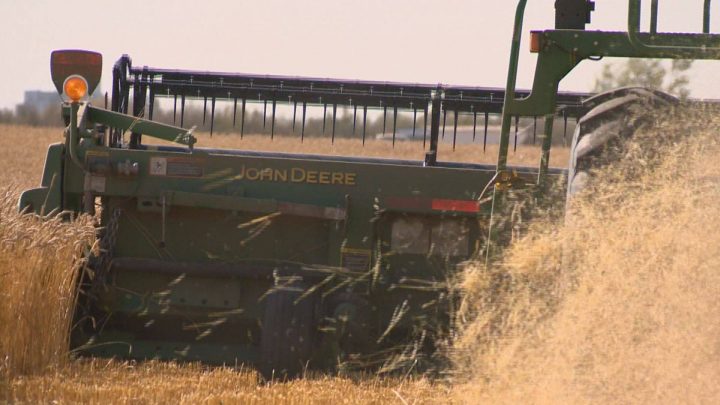An organization representing farmers in Saskatchewan is calling for more support as it monitors the impact of the novel coronavirus on the agriculture sector.

Among concerns the Agriculture Producers Association of Saskatchewan (APAS) has are supply chains, access to labour during the growing season and the financial impact of the COVID-19 pandemic.
“The situation is changing fast, and it’s crucial for us to have real-time information to share with government about how farmers are being affected by COVID-19,” said APAS president and farmer Todd Lewis.
That’s why Lewis said they are undertaking a weekly survey among farmers to determine how their operations are being impacted by the crisis.
APAS said farmers are on high alert after dealing with a “perfect storm” of trade disputes, transportation disruptions and weather conditions over the last two years.
“The more data APAS can collect about what’s happening at the Saskatchewan farm gate, the more likely it will be for government support measures to actually meet farmers’ needs,” Lewis said.
- Canadian man dies during Texas Ironman event. His widow wants answers as to why
- ‘Shock and disbelief’ after Manitoba school trustee’s Indigenous comments
- Several baby products have been recalled by Health Canada. Here’s the list
- ‘Sciatica was gone’: hospital performs robot-assisted spinal surgery in Canadian first
The federal government said on March 23 it is providing Farm Credit Canada (FCC) with a $5-billion in additional lending capability.
It was also announced at the same time that farmers in the Advance Payment Program with loans due before April 30 will be given an additional six months to make their loan payments.
“The federal government took a first step by increasing the capacity of FCC and extending repayment on Advance Payments Program loans, but increasing farmers’ debt is not the answer,” Lewis said.
“Much more needs to be done.”
Lewis said that includes farmers being able to access the money that has already been promised by the federal government right now. If they can’t, then determining how farmers can access the money needs to be made more clear.
“Saskatchewan produces a significant portion of the world’s food, and we need to understand how farmers are being affected by this crisis,” Lewis said.
“Ideally, a huge number of farmers in Saskatchewan will take the survey every week. That’s how we can make sure the government understands what’s going on here.”
APAS is looking for data that includes disruptions to operations, cost increases, shipping delays and access to the labour force.
Lewis said financial needs and mental health questions are also included in the surveys.
He added that producers and their families can seek mental health support through the farm stress line at 1-800-667-4442.
APAS said the weekly survey results will be shared with the government.
Questions about COVID-19? Here are some things you need to know:
Health officials caution against all international travel. Returning travellers are legally obligated to self-isolate for 14 days, beginning March 26, in case they develop symptoms and to prevent spreading the virus to others. Some provinces and territories have also implemented additional recommendations or enforcement measures to ensure those returning to the area self-isolate.
Symptoms can include fever, cough and difficulty breathing — very similar to a cold or flu. Some people can develop a more severe illness. People most at risk of this include older adults and people with severe chronic medical conditions like heart, lung or kidney disease. If you develop symptoms, contact public health authorities.
To prevent the virus from spreading, experts recommend frequent handwashing and coughing into your sleeve. They also recommend minimizing contact with others, staying home as much as possible and maintaining a distance of two metres from other people if you go out.
For full COVID-19 coverage from Global News, click here.










Comments